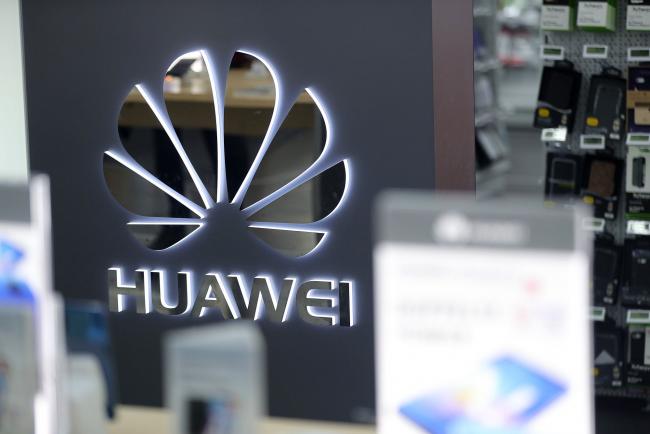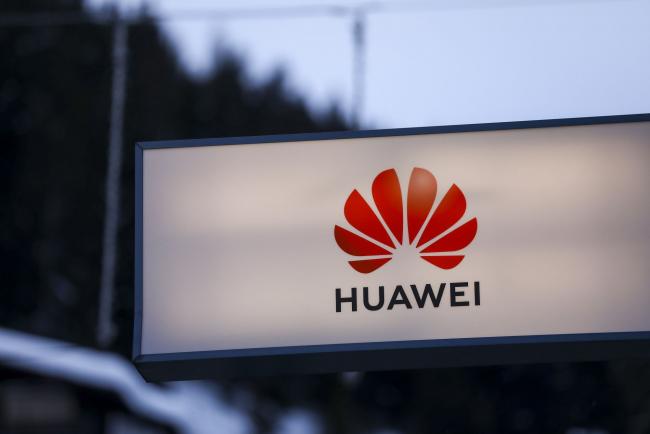(Bloomberg) -- Huawei Technologies Co. has sued the Federal Communications Commission, seeking to overturn a regulatory decision that will hurt the Chinese corporation’s business with its last major American clients.
China’s largest technology company by sales said it has filed a lawsuit with the Fifth Circuit Court of Appeals, challenging the American agency’s decision to bar the use of federal subsidies by rural carriers purchasing its equipment. Huawei complained it wasn’t accorded due process and was unfairly labeled a national security threat.
The lawsuit is the latest attempt by Huawei to fight American sanctions and curbs that threaten the world’s largest networking business. Huawei, which the White House accuses of aiding Beijing in espionage, is stepping up a worldwide legal and publicity campaign to protest what it deems unfair treatment by the U.S. and its allies. It’s turned increasingly to courts to fight a plethora of issues from alleged defamation to American network restrictions.
“The U.S. is great because it embraces openness, inclusiveness and the rule of law,” Chief Legal Officer Song Liuping told reporters at a briefing in Shenzhen on Thursday. “If it abuses its power, the ultimate loser may be itself.”
FCC representatives weren’t immediately available for comment outside of normal business hours.
Read more: Huawei Sues U.S. Over Equipment Ban, Escalating Legal Clash
Huawei has initiated a number of high-profile legal actions to defend its business and reputation overseas. In March, the company brought the U.S. government to court in Texas, arguing a provision in the 2019 National Defense Authorization Act that barred it from certain networks violated the U.S. Constitution. It also filed defamation claims in Paris last month over claims made on TV about its alleged ties with the Chinese government, something the company has repeatedly denied. Meng Wanzhou, the Huawei chief financial officer who faces potential extradition to the U.S. for alleged fraud, has also sued the Canadian authorities for wrongful detention.
Even as Huawei fights to safeguard its reputation abroad, it may be facing a public backlash back home. This week, news that it had reported an employee to police who was subsequently detained for 251 days -- then released without charges -- sparked a social media furor against the company’s infamously demanding work environment. Local media reported the longtime employee had sought severance pay upon dismissal over unspecified reasons, but was then detained on extortion charges. “We are obligated to report to the authorities if we find any suspicious or unlawful acts,” Song said Thursday, saying he had nothing more to add.
The backlash stood in stark contrast to the consistent support Huawei has enjoyed at home since it ended up in Washington’s cross-hairs. Huawei is considered a central facet of sensitive U.S.-Chinese negotiations intended to defuse trade tensions between the world’s two largest economies. The Trump administration however has said issues related to the company won’t be included in any potential deal and is a separate process.
The FCC’s move comprises one aspect of a broader campaign to contain a Chinese national champion Washington views with suspicion. In May, the White House placed Huawei on a blacklist that prohibited the sale of American software and circuitry. It’s so far defied those curbs -- reporting hyper-growth in quarterly sales and smartphone shipments -- but expects Washington’s ban to erase $10 billion in 2019 revenue. That’s down from the $30 billion Huawei’s billionaire founder, Ren Zhengfei, previously feared.
The U.S. market itself has shrunk in importance in past years for Huawei. The country’s biggest telecom carriers, including AT&T Inc. and Verizon Communications Inc (NYSE:VZ)., barely buy any of its gear and dropped plans to sell Huawei phones last year under pressure from the U.S. government. Huawei still maintains business ties with a number of small American carriers serving rural areas.
(Updates with comments from a press briefing from fourth paragraph)
To contact Bloomberg News staff for this story: Gao Yuan in Beijing at ygao199@bloomberg.net
To contact the editors responsible for this story: Peter Elstrom at pelstrom@bloomberg.net, Edwin Chan
©2019 Bloomberg L.P.

